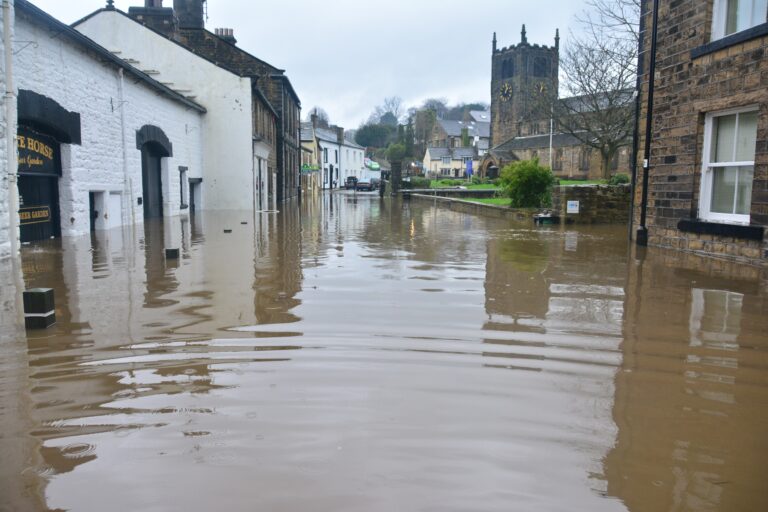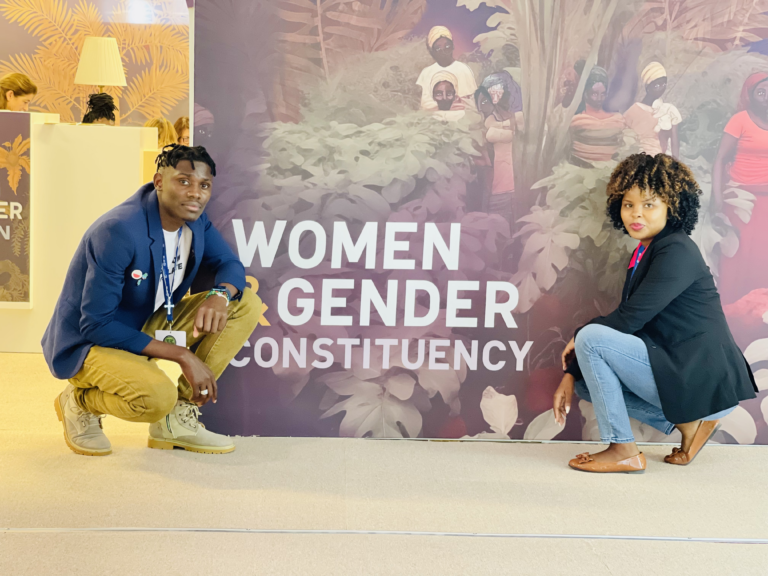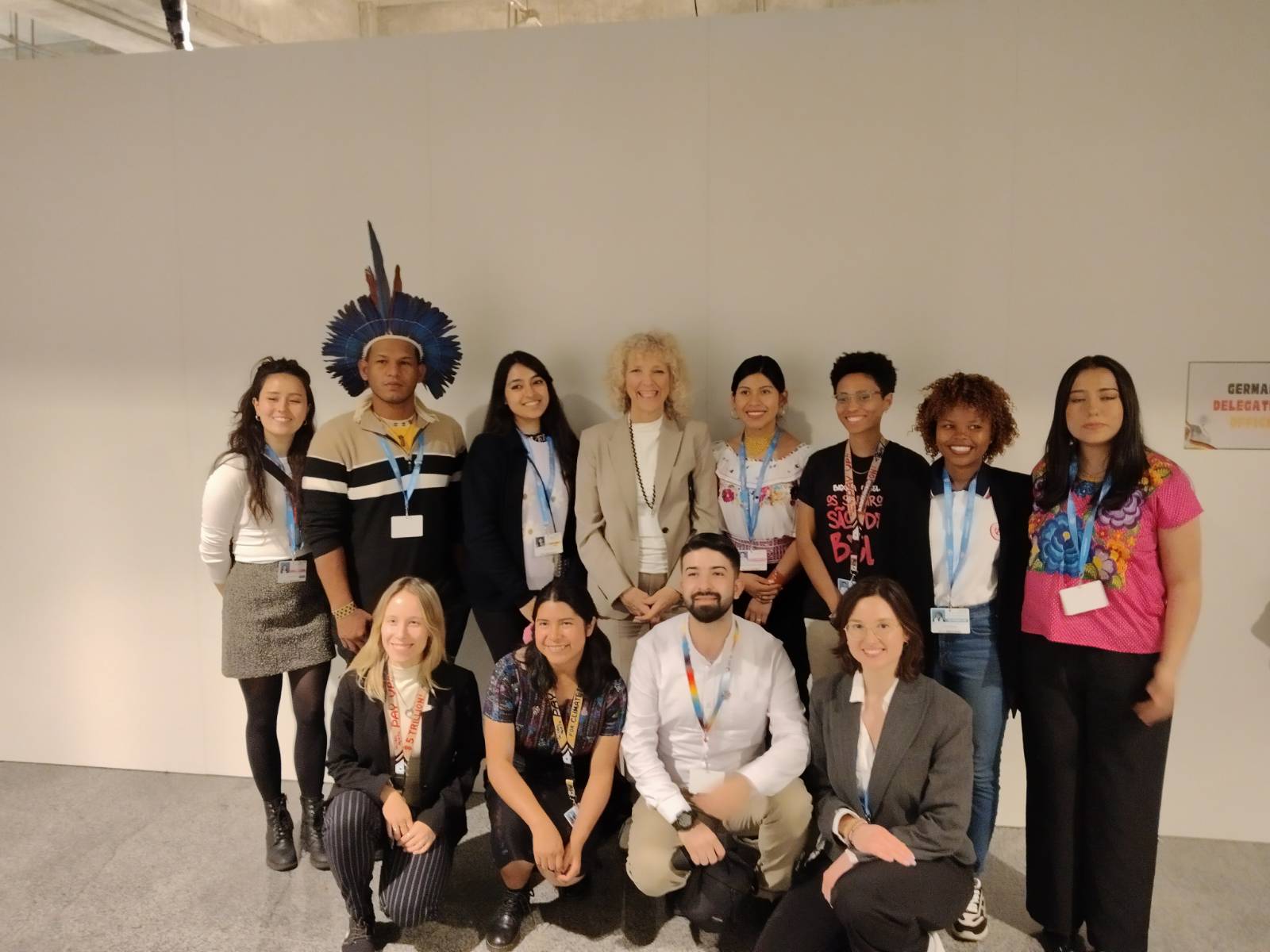
Reflections on the UN Climate Change COP29 in BAKU
Dorcas Wakio, Population Matters partner and Choice Ambassador, reflects on UN Climate Change COP29 (COP29) in Baku, advocating for gender equity, climate finance, and marginalised voices. Her work highlights the importance of inclusion and collaboration in addressing the climate crisis.
Cautious Optimism
Attending COP29, I arrived with cautious optimism, hopeful that as a finance COP, it would bring much-needed progress for marginalized, women, vulnerable, and indigenous communities.
However, the summit exposed critical shortcomings for developing nations. Despite an agreed target of $300 billion in climate finance by 2035, this figure remains far below the $1.3 trillion needed to effectively address climate adaptation and mitigation, leaving crucial efforts at risk.
Commitments to phase out fossil fuels also fell short, with no firm deadlines set due to opposition from fossil-fuel-reliant nations. Meanwhile, progress on the Loss and Damage Fund was undermined by vague funding sources and implementation challenges, frustrating vulnerable nations who have already borne the brunt of climate impacts.
Ultimately, many of us left COP29 feeling disheartened as the promises made were not enough to address the urgent needs of those who are already suffering the most from climate change.
Gender and Climate Finance
This year, I closely followed the negotiations surrounding gender and climate finance, specifically in relation to the Loss and Damage agenda. These two topics are deeply interconnected, as women and gender-diverse people are disproportionately impacted by climate change.
They also often face barriers to accessing financial resources, making it even harder to recover from and adapt to climate disasters.
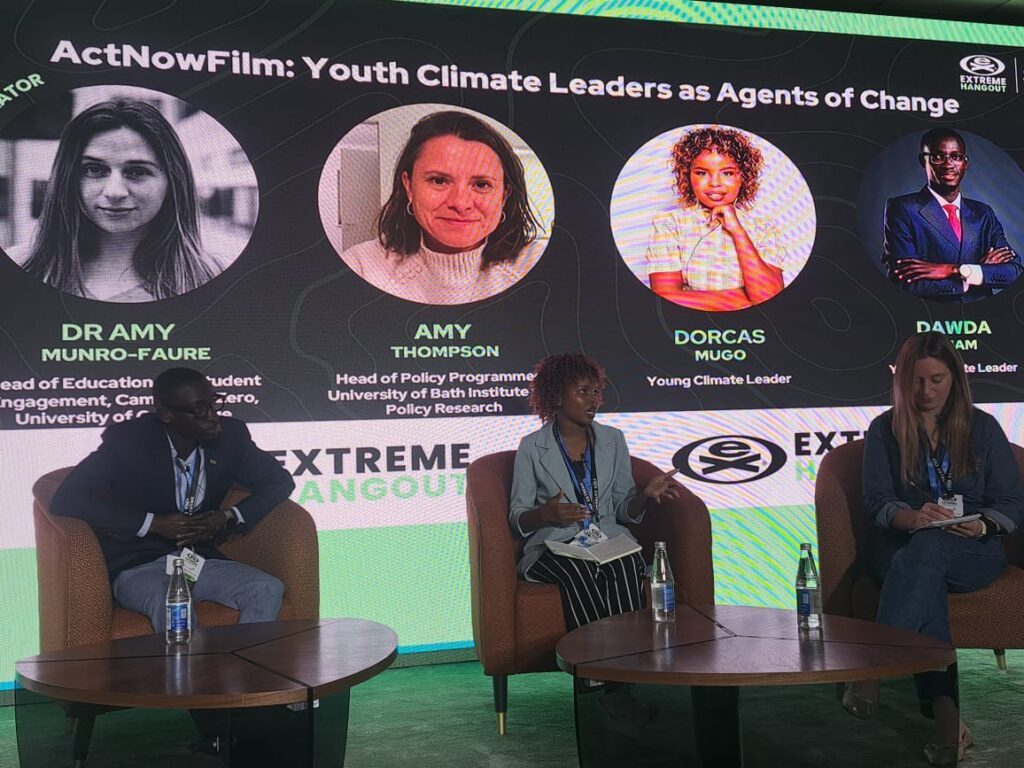
The discussions at COP29 highlighted the need for gender-responsive climate finance ensuring that funds meant to address climate damage are distributed in ways that specifically support women, indigenous groups, and other marginalized communities.
This was a critical issue that I followed closely during the whole COP.
Youth Inclusion and the Extreme Hangout
I had the opportunity to speak at the Extreme Hangout, where I had the opportunity to share the stage with an incredible youth champion Dawda Cham from Gambia.
Together, we discussed the critical need for youth inclusion in climate negotiations like COP. The side event was organized by ActNowFilm which provided a space for young activists to raise awareness and to share stories.
I also had the opportunity to witness the review of Youth Climate Leaders as Agents of Change which featured a diverse group of powerful drivers of change from around the world.
It was incredibly moving to see changemakers from various nations showcasing their impactful work in the fight against climate change.
My Work and Climate Advocacy
What made this experience even more special for me was that my own work was featured as part of this review. ActNowFilm had coordinated the event, and my contributions to climate advocacy were documented and premiered during the conference.
To see my own journey working alongside passionate young leaders, fighting for the inclusion of marginalized communities in climate dialogues, and pushing for transparency in the Loss and Damage Fund captured and shared on such a significant platform was empowering.
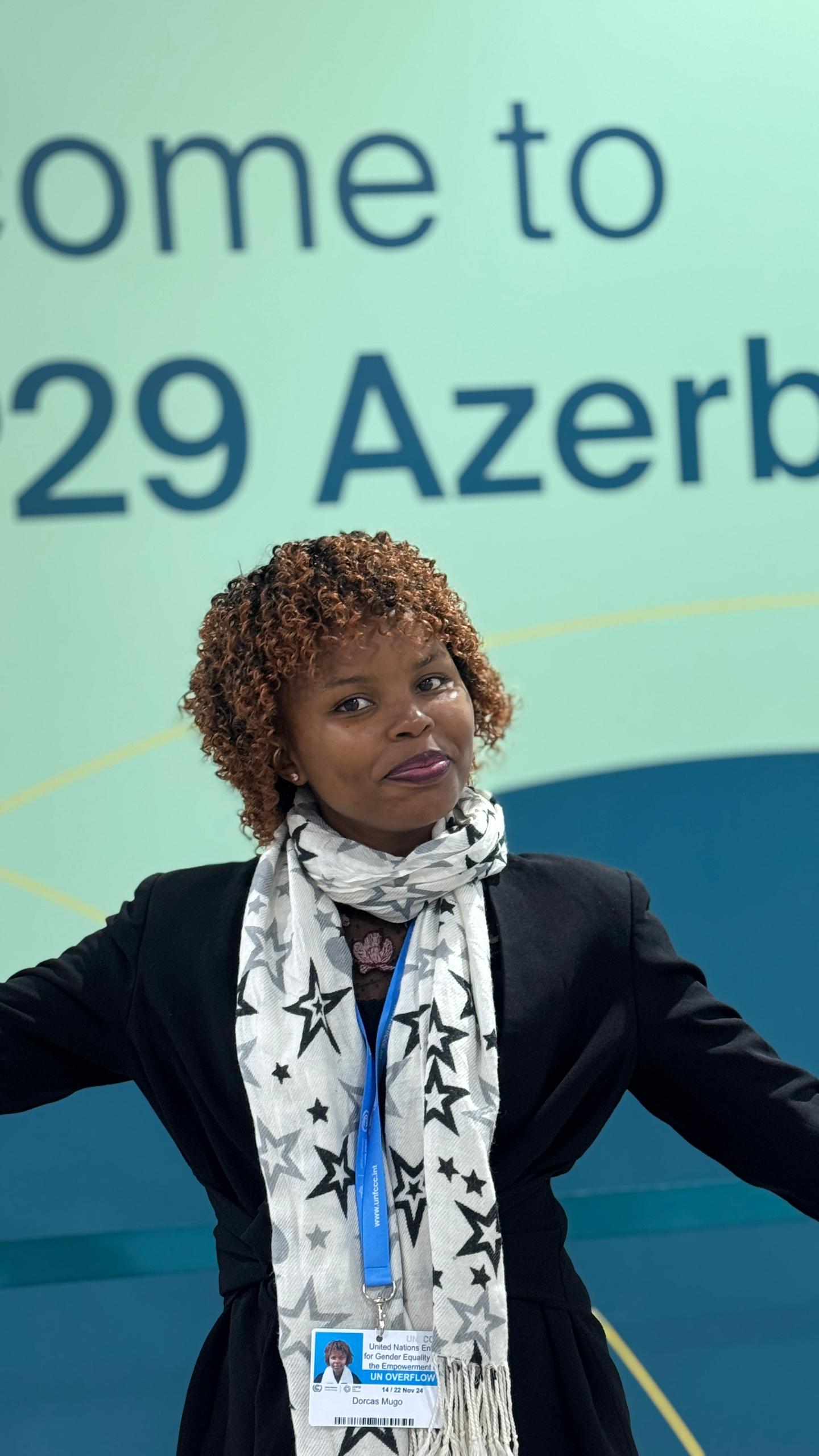
This moment was a reminder of the power of storytelling and the importance of visibility. Through films, articles, and other media, we can amplify the voices of those on the frontlines of climate action, making sure that their stories, struggles, and victories are heard.
Documenting and Networking at COP29
During the COP I was able to document key events, discussions, and developments at COP29 through various content channels that PM also shared in their socials to amplify my work.
This was to raise awareness on issues like gender equality and climate finance, particularly in relation to loss and damage. It was fulfilling to contribute to the global narrative surrounding these issues, amplifying voices that are often overlooked.
Networking was also key during COP, I attended almost all gender-related side events and ensured I made significant contributions.
Engaging with Policymakers
As a Klima Delegate 2024 I was able to attend two bilateral meetings organized by CARE Deutschland where we connected with women leaders such as Jennifer Morgan who was among the main negotiator for Germany and Kathrin Henneberger.
I was able to ask pressing questions on the accessibility and transparency of the Loss and Damage Fund, particularly in how it can better support vulnerable communities.
It was an eye-opening moment to sit across from policymakers, to understand their perspectives, and to raise critical concerns regarding the inclusion of marginalized groups in the conversation.
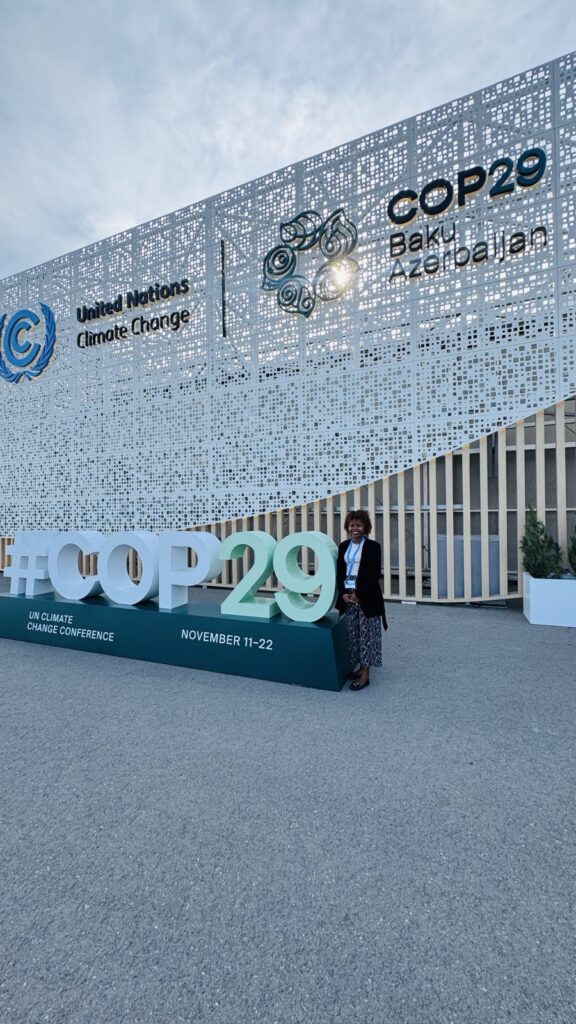
It was a reminder that while these funds are being created to address the damages already caused by climate change, there is still much work to be done to ensure that the most vulnerable communities, who often lack access to decision-making tables, can effectively benefit from these mechanisms.
Gratitude and Looking Forward
I would like to express my heartfelt thanks to Population Matters, Klima Delegation, CARE Deutschland, and Wild Heart Kenya for their unwavering support.
Without their encouragement and resources, I would not have had the opportunity to engage in this transformative experience. Your support allowed me to bring my perspective as a young climate advocate to COP29 and to make meaningful connections that will drive my work forward.
I look forward to collaborate and partner with all connections that I made so as to make sure that we are taking actions from even our local level.
The work isn’t over yet, but we are making progress, and together, we can create a more just, equitable, and sustainable future.
_________________________________________________
Dorcas Wakio is an environmental and climate activist from Ukunda, Kenya. To find out more about her work, please follow her on Twitter/X.
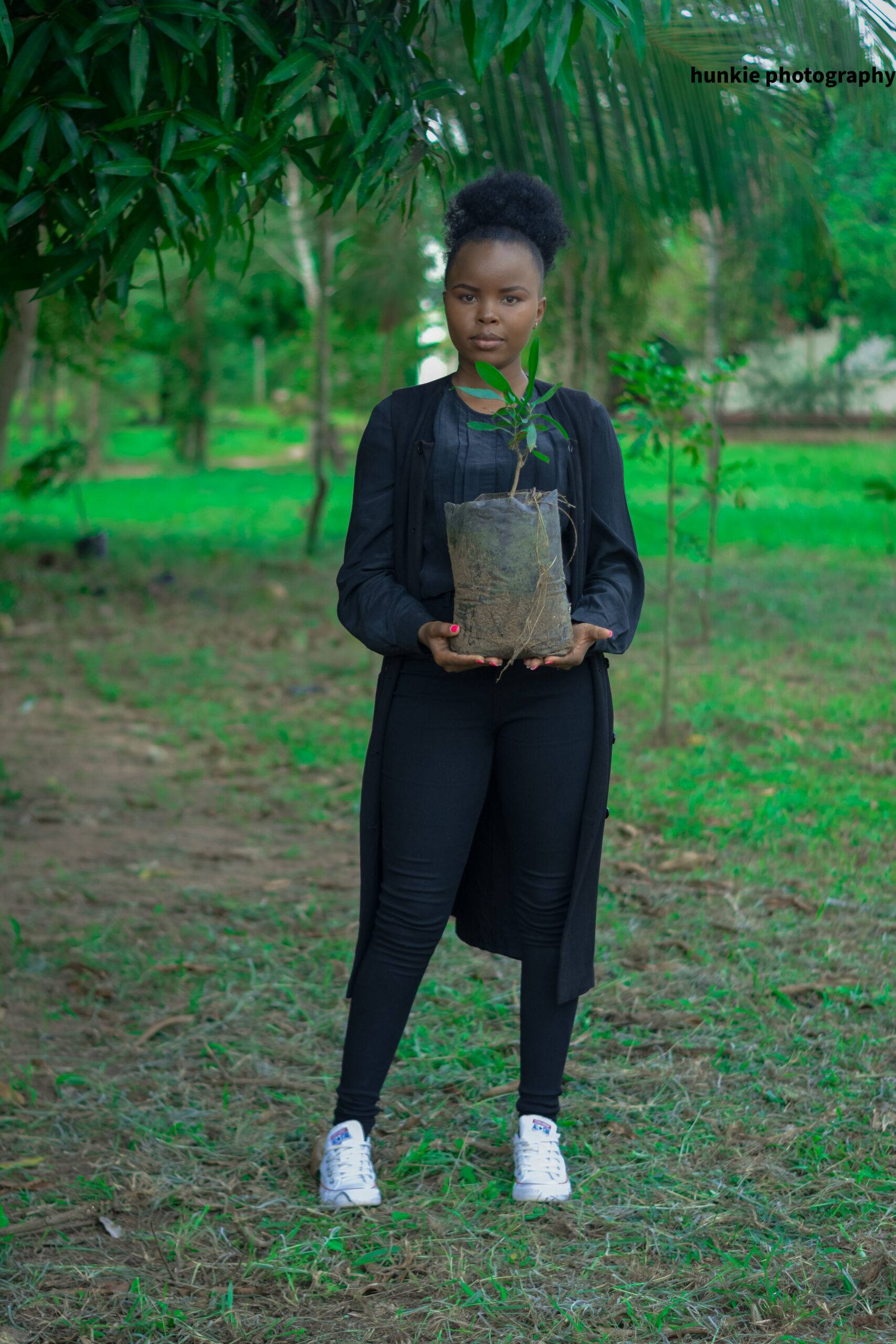
The views expressed in guest blog posts do not necessarily reflect the opinions and position of Population Matters.

